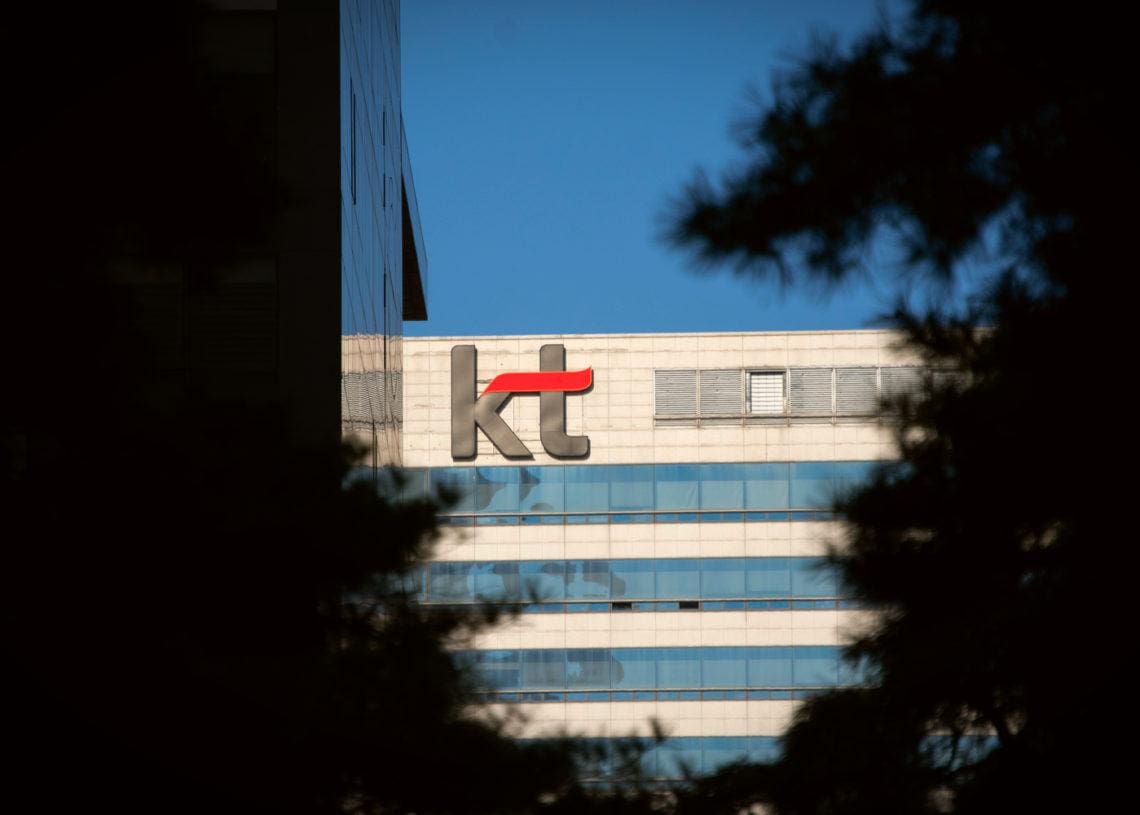The SEC’s FCPA settlement with South Korean telecom KT Corporation was relatively light, thanks in part to the latter’s cooperation. But the company’s missteps remain a cautionary tale for ethics and compliance. Here’s where KT Corporation ignored red flags and missed course-correcting opportunities.
The SEC on February 17 announced its first FCPA enforcement action in 2022: South Korean telecommunications company KT Corporation agreed to pay $6.3 million to settle corruption violations. As part of the settlement, it agreed to pay $3.5 million in civil penalties and $2.8 million in disgorgement.
The company is South Korea’s largest telecommunications company, and its American Depositary Shares are traded on the New York Stock Exchange. KT files periodic reports with the SEC.
Today we announced that Seoul-based KT Corporation will pay $6.3 million to resolve charges that it violated the Foreign Corrupt Practices Act by providing improper payments for the benefit of government officials in Korea and Vietnam.https://t.co/XdPZlqQkuE
— U.S. Securities and Exchange Commission (@SECGov) February 17, 2022
The charges handed down relate to violations of the FCPA’s books and records and internal accounting controls provisions stemming from the company’s activities in South Korea and Vietnam. As explained in the SEC’s order, KT lacked sufficient internal accounting controls over its expenses, which allowed managers and executives to generate slush funds for illegal purposes. Additionally, KT failed to adopt anti-corruption policies and procedures with respect to donations, employment candidates, vendors, subcontractors or third-party agents. As a result, KT Corp. employees were able to provide improper benefits to government officials and potential government customers.
Aftermath of Criminal Prosecutions
The SEC’s enforcement action followed two criminal prosecutions in South Korea: the first in 2014 against KT’s president for embezzlement, and in November of 2021 against KT and 14 of its executives for illegal political contributions.
As explained in the SEC order, KT made improper payments between 2009 and 2018 to government officials in South Korean and Vietnam. In South Korea, executives maintained a large slush fund from which they paid for entertainment and gifts to members of the National Assembly. In Vietnam, KT employees gave money to third-parties connected to Vietnam government officials to secure contracts to construct a solar power cell system and to supply vocational colleges with hardware and software.
All of these payments were mischaracterized on KT’s books and records. In total, the company mischaracterized $11.2 million in expenses and earned illegal profits of approximately $2.3 million.
As part of the settlement, KT agreed to submit a report every six months to the SEC on the status of remediation of its anti-corruption compliance program for a term of two years.
KT did not self-report the violations but did cooperate with the SEC’s investigation. As part of its remediation, the corporation terminated several employees responsible for the misconduct. It also enhanced its accounting controls and ethics and compliance program, including enhancement of its code of conduct and policies and procedures concerning expenses, and increased training on anti-bribery issues. KT continues to remediate its process around anti-corruption risk assessments, its audit program and other internal accounting controls relating to third-parties.
KT Corp’s Bribery Schemes
When you look under the hood of FCPA enforcement actions, the schemes employed by corporate actors can be shocking. The “creativity” of bad actors can provide important lessons learned and help future investigators when trying to unearth bribery schemes. At the root of most schemes is brazen arrogance and rationalization of otherwise improper behavior.
South Korea
From 2009 to 2017, KT high-level executives maintained slush funds, consisting of off-the-books accounts and physical stashes of cash, to pay government officials. They used the slush funds to provide gifts, entertainment and illegal political contributions to members of the Korean National Assembly.
During the period 2009 to 2013, a KT executive officer and another senior executive created the slush fund by providing inflated bonuses to company officers and executives, who then returned a portion of the bonus payments to create a slush fund of $1 million. The cash was stored in a safe on the sixteenth floor of KT’s offices, while a senior executive maintained some funds in his personal bank account. KT booked the $1 million slush fund as executive bonuses.
In October 2013, media reports on the bonus scheme caused the executive officer to resign. He was eventually charged criminally with embezzlement and was acquitted after a trial.
Failure to Correct Course
Despite this public scandal, KT made no attempt to remediate its internal accounting controls. In fact, the company implemented a new scheme to generate funds for illegal payments. KT’s Corporate Relations Group purchased gift cards and then converted them to cash. To execute the scheme, KT hired a vendor who converted the gift cards into cash and then delivered the cash back to executives. The vendor was paid a commission for converting the gift cards to cash.
KT executives continued to make illegal political contributions to members of the National Assembly. A total of approximately $393,574 in contributions were made to 99 Korean lawmakers. KT booked the expenses as either “research and analysis” or “entertainment.” In November 2021, Korean authorities indicted KT and 14 high-level executives for criminal violations stemming from the gift card scheme.
Between 2015 and 2016, the company made improper payments totaling $1.6 million to three foundations connected to Korean politicians. All of these payments were booked incorrectly, either as charitable donations or as a sponsorship. The requests for these payments were made directly by government officials. KT made no effort to determine whether the payments were legal.
In addition to improper payments, KT hired two advertising executives from these foundations and assigned them to desirable positions. The company altered its criteria for outside advertising agencies to hire a new agency created by close associates from these foundations. Without conducting any due diligence, KT eventually paid the two individuals a total of $454,009 in salaries and their new advertising firm a total of $5.88 million in advertising fees.
Vietnam
Between 2014 and 2018, KT employees arranged payments through third parties to bribe Vietnam government officials to secure valuable government contracts to provide solar cell power and training for five vocational colleges. The company failed to conduct due diligence of any of the third parties.
KT retained a construction company to pay a bribe of $95,031 to a Vietnam government official to secure the solar cell power contract. The construction company arranged for an employee to deliver the cash to the government official. The construction company eventually secured reimbursement from KT by claiming that the payment was for “expenses for engaging in sales activities.”
In 2013 and 2014, KT participated in a consortium to bid on providing the hardware and software to several vocational colleges in Vietnam. To facilitate the bribery payment, a Vietnam government official introduced KT to a Vietnamese company to serve as a local agent, with the understanding that the local agent would pass a percentage of any commission payments to the government official.
In 2015, one of the consortium partner’s refused to pay a portion of the agents fee because of the risk of bribery. KT agreed to cover the partner’s portion of the payment. Eventually, the government official was paid $550,000 by KT and a new consortium partner. To disguise the payment, KT enlisted a new consortium partner, who was not subjected to any compliance due diligence review.
A bribery payment of $735,000 through the local agent was listed in an invoice as “site survey for installation,” and additional bribery payments were separately included in future invoices.
Lessons Learned from the KT Corp. SEC FCPA Settlement
Even though the size of the SEC enforcement action is relatively small, the underlying misconduct provides a number of important lessons learned. Let’s look at some of the most significant of these:
C-Suite Misconduct
KT’s slush fund was executed by a high-level executive and was funded through inflated bonus payments. Each executive returned the over-payment to the high-level executive, who then maintained a cash slush fund. The high-level executive appears not to have been subjected to any financial controls or audits. As a result, the executive was able to engage in financial misconduct without fear of being caught.
C-suite misconduct often is a relatively low risk, but if it occurs, the consequences can be significant. Risk assessments often exclude the c-suite from review. At a minimum, the entire c-suite has to be subject to internal accounting controls and compliance policies and procedures.
Failure to Remediate
The KT scandal resulted in domestic controversy in South Korea. KT Corp. made no effort to remediate the problem, adopt enhanced controls or implement an anti-corruption compliance policy. KT Corp.’s failure reflects a basic governance omission – the KT Corp. board, compliance, internal audit and other important constituencies apparently were unable to bring about change or even address the root causes of the scandal and implement remedial steps.
Vendor Risks & Transaction Monitoring
KT resumed its slush fund operations, notwithstanding the criminal scandal surrounding the slush fund. As part of the new scheme, KT used gift cards and employed an outside vendor to help cash the cards and return the cash to the executives. The vendor was not subjected to due diligence and KT failed to employ basic transaction monitoring to catch the gift card scheme.
Political Contributions
KT Corp. made a number of illegal and improper contributions to South Korean members of the National Assembly. The payments were not subjected to any controls nor compliance review. The misconduct underscores yet again the danger of political contributions and the need for strict scrutiny.
Third-Party Due Diligence
The KT enforcement action is replete with failures to conduct due diligence – a vendor, a local agent in Vietnam, a consortium (joint venture) in Vietnam.
In the Vietnam local agent case, a significant red flag occurred at the outset of the relationship. The government official responsible for the contract referred the local agent to KT. The purpose of the referral was clear – the local agent would be used as a conduit to pay bribes. This red flag should have stopped KT from engaging the third-party. A government official referral and requirement is the proverbial “kiss of death” for a third-party.
This post originally appeared on Mike Volkov’s Corruption, Crime & Compliance blog. It is republished here with permission.



 Michael Volkov is the CEO of The Volkov Law Group LLC, where he provides compliance, internal investigation and white collar defense services. He can be reached at
Michael Volkov is the CEO of The Volkov Law Group LLC, where he provides compliance, internal investigation and white collar defense services. He can be reached at 









